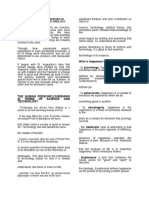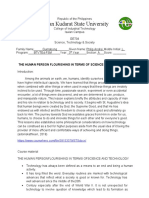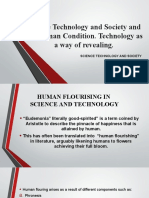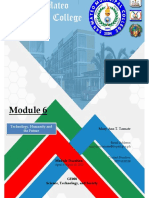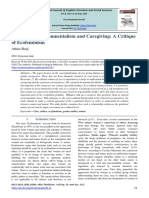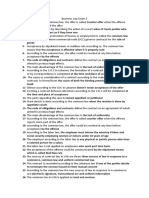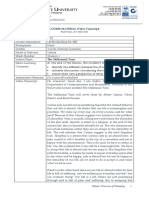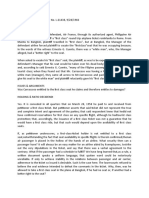0% found this document useful (0 votes)
25 views12 pagesLesson 5
This document discusses technology and its impact on revealing the human condition. It explains that early humans invented tools to make life more comfortable and survive. After the rise of science and technology, our understanding of human nature changed. Technologies like television, mobile phones, and computers are now ubiquitous in homes and aid communication, information dissemination, recreation, and bonding. However, advancing technologies also raise ethical issues regarding how they intersect with humanity.
Uploaded by
cshann077Copyright
© © All Rights Reserved
We take content rights seriously. If you suspect this is your content, claim it here.
Available Formats
Download as DOCX, PDF, TXT or read online on Scribd
0% found this document useful (0 votes)
25 views12 pagesLesson 5
This document discusses technology and its impact on revealing the human condition. It explains that early humans invented tools to make life more comfortable and survive. After the rise of science and technology, our understanding of human nature changed. Technologies like television, mobile phones, and computers are now ubiquitous in homes and aid communication, information dissemination, recreation, and bonding. However, advancing technologies also raise ethical issues regarding how they intersect with humanity.
Uploaded by
cshann077Copyright
© © All Rights Reserved
We take content rights seriously. If you suspect this is your content, claim it here.
Available Formats
Download as DOCX, PDF, TXT or read online on Scribd
/ 12
























